OU Olympics, On Hold: Yul Moldauer Staying Positive as he Trains for His Spot on Team USA
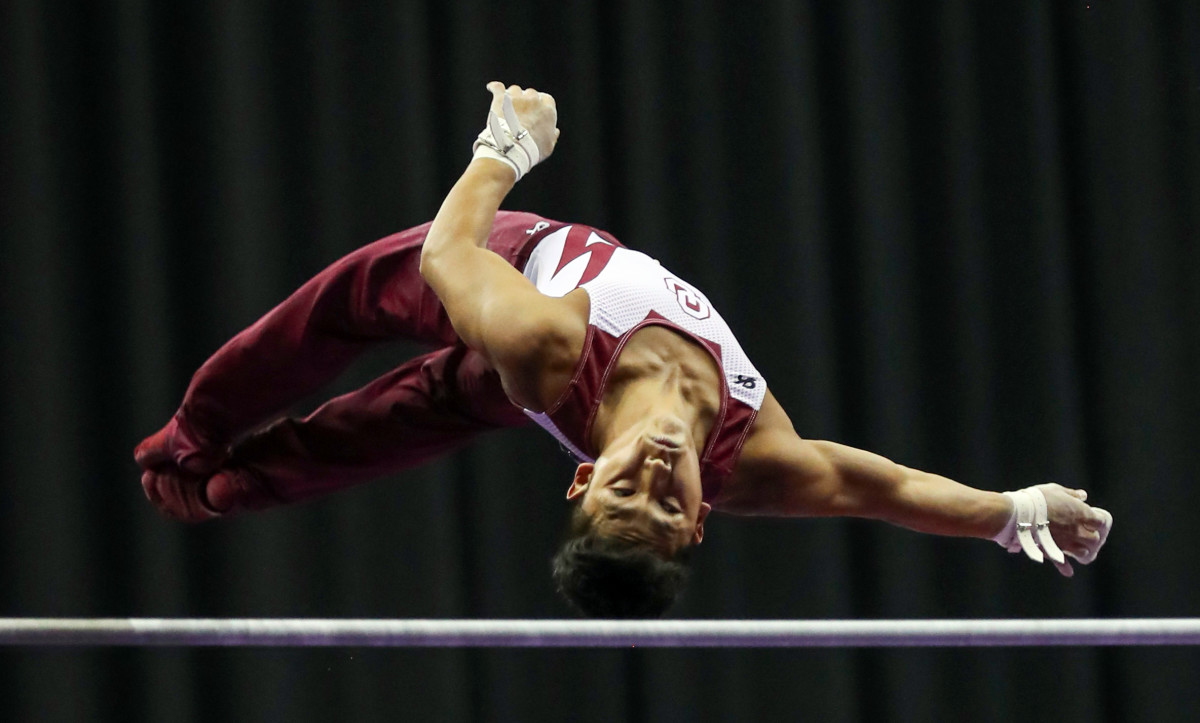
Oklahoma’s Yul Moldauer was about to become the next big thing in American men’s gymnastics when his Olympic dreams were put on hold.
That was four years ago.
Now Moldauer is once again patiently waiting for his one big shot.
Moldauer graduated from OU last year as one of the most decorated young gymnasts in the nation. His Olympic moment was only five months away. He had intensely rehabbed an elbow injury and had begun training for the 2020 Olympiad — only to find out this year’s Tokyo Games would be postponed until 2021 by the Coronavirus pandemic.
“You know, we’re making the best out of it,” Moldauer told SI Sooners.
Instead of spending hours working on his craft at the Sam Viersen Gymnastics Center in Norman, Moldauer is in his garage, spinning away on his own pommel horse and strengthening on his still rings.
“I actually feel like we’re able to do more than most people,” Moldauer said.
“It was very disruptive. But it’s not like I can blame it on anything or anyone,” he said. “ … I don’t think at one point I was negative at all. I just took my time and analyzed what was going to happen and just moved forward. Because in reality, people everywhere, the OU guys, everyone is suffering, it’s every single school, it’s every single athlete, every single civilian. So it’s nothing I can get mad about or stress on. It’s something you have to accept and remake your plan this year.”
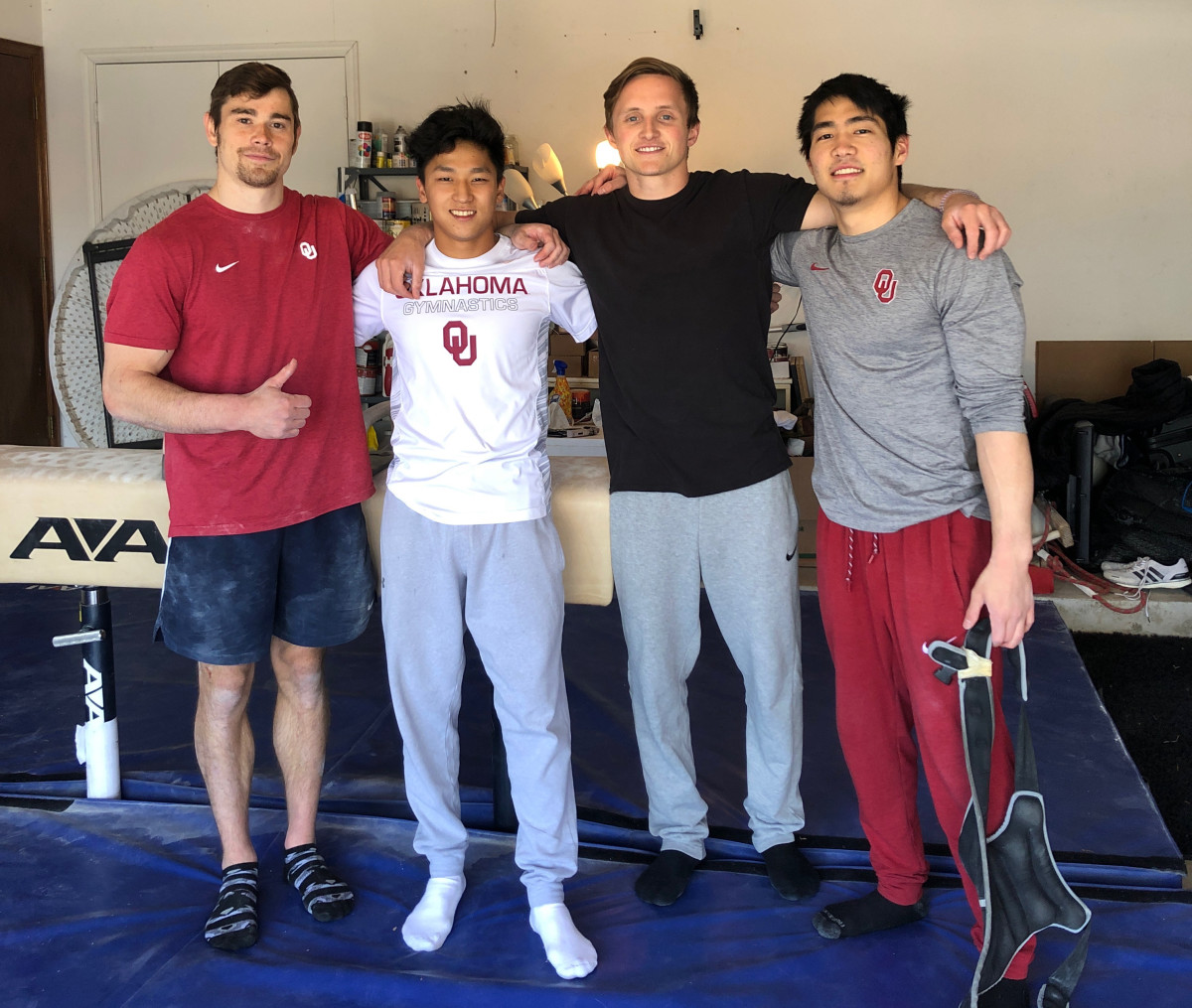
That kind of positive mental attitude doesn’t surprise OU coach Mark Williams.
“Yul’s that kind of kid,” Williams said. “He’s generally very good about staying real positive. And understanding, ‘I can only control so many things.’ He wants to have his best opportunity to do this sport and have a career that’s more than just what he’s done so far.”
Four years ago, Moldauer had just finished an unforgettable freshman season at OU.
He became just the second freshman in NCAA history to win the all-around national championship, took second place on parallel bars and third on floor and earned All-America status in all-around and in both bars and floor.
Later that year, Moldauer finished fifth at the U.S. Olympic Trials — Team USA takes five competitors and two alternates to the Olympics — but Moldauer was left off the squad as Chris Brooks, Jacob Dalton, Sam Mikulak, Alex Naddour and John Orozco earned roster spots.
Moldauer had competed internationally only twice before then, so the experience of the other athletes — “all these really old guys who had been at the previous Olympic Games and had been at the Worlds,” Moldauer said with a youthful laugh — was impossible to pass up.
“I had to be respectful and just use it as an experience,” Moldauer said. “So they just took the older guys just because they had so much more experience than me.
“I remember Mark telling me to just soak in this experience, because he said hopefully we’ll back in the same situation in 2020.”
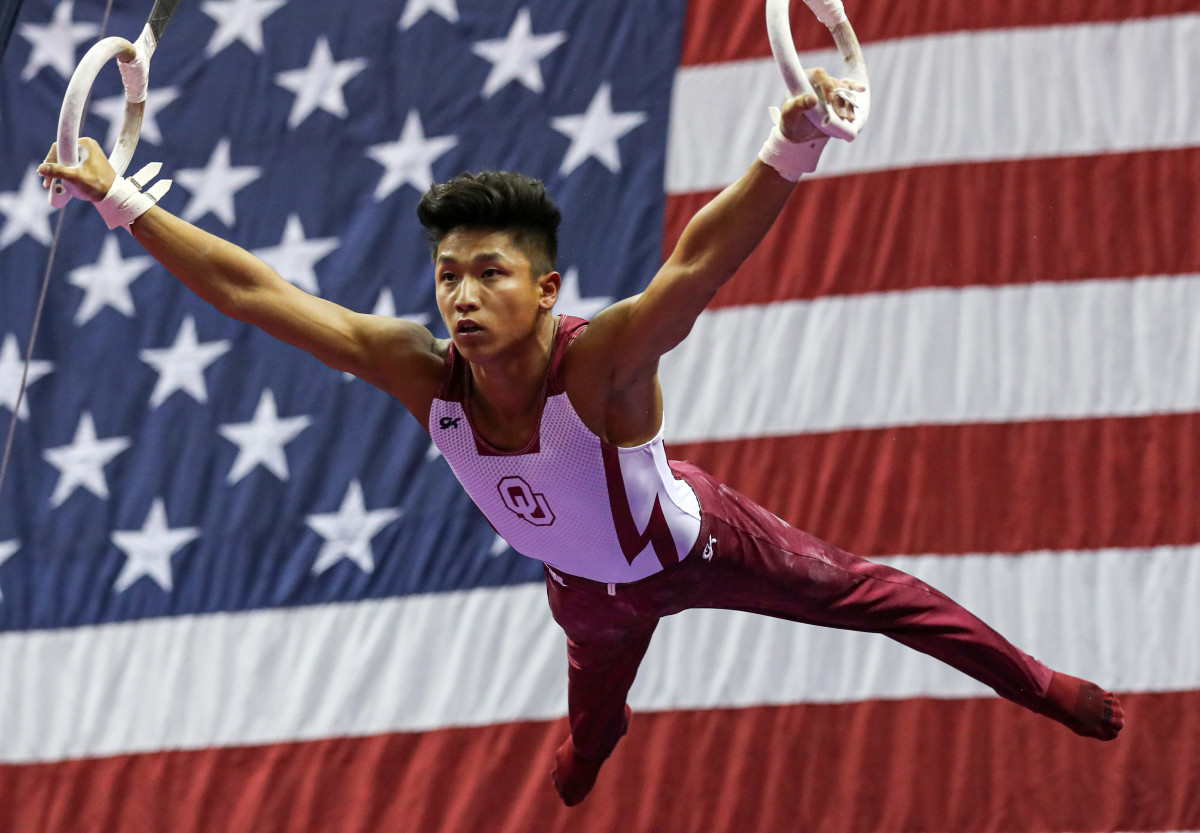
Said Williams, “He was just a little bit too inexperienced, I believe, for the committee to put him on that team. I think he would have been just as good as the last few selections to that group, but he was the new unknown. I was certainly disappointed they didn’t at least make him an alternate, so he would have had the opportunity to get a sense of what it’s all about, knowing he was gonna be the next big thing.
“Then the next year, 2017, he goes to his first World Championships and he medals. So I certainly felt like he was in that mix to be part of the team that went to Rio. I also understand how the selection went, and the two alternates were very veteran guys who could fill spots if someone was hurt. I knew that Yul would probably get his chance eventually.”
Moldauer not only quickly earned a spot on Team USA, he won the 2017 U.S. National Championships All-Around title and wound up with bronze at the 2017 Worlds. He also won the American Cup All-Around title in 2017 … and 2018 … and 2019. That made him just the third gymnast to win three straight American Cup titles, and the first since 1999.
“He’s consistently been in the top 1 or 2 pretty much the last four years, I believe, in our country,” Williams said. “When it comes down to competition, Yul always rises to the top because he’s an excellent performer, he’s always got a very artistic quality to his gymnastics that earns some points, and his difficulty level matches our best guys. So he’s had good meets. He’s proven he can be at the World Championships and succeed.
“So I felt like we just had to get him as healthy as we can get him, get his skills down and feel comfortable and he would have made the (2020) Olympic team. But you never know.”
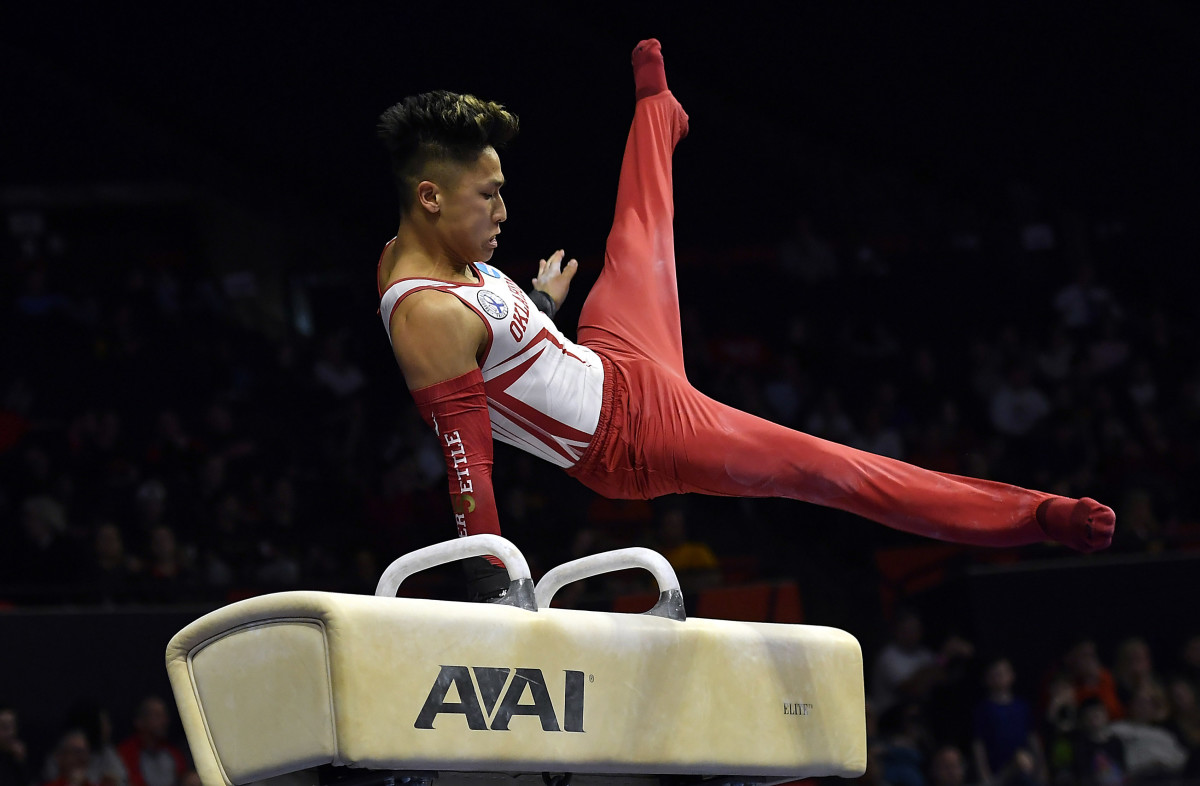
It’s the not knowing, about anything right now, that can be maddening. Consider that if the world’s sporting calendar is pushed back much further — there’s a sequential build-up before the Olympics in just about every sport, after all — that might have a profound affect on how we consume Olympic coverage, or what athletes show up, or what coaches are available.
“At this point, we would be doing routines, we would just be polishing them up,” Moldauer said. “But right now, it’s just more like conditioning, staying in shape. So it’s almost like we’re in preseason now instead of the actual season of doing routines.
“They say if you take one day off in gymnastics, it’s gonna take you two days to get back. And thankfully we’ve been pretty good about working out and doing what we can. But when you think about going into the gym, you also have to think about your body. Your mind’s gonna feel right, but your body might not respond to your quickness, and you could easily get hurt. So it’s gonna take some strategy to come back slow, but also coming back in time to just stay in shape and do your routines safely.”
Williams laments what he described as an uneven playing field for all Olympic hopefuls. For instance, specific to gymnastics, he said Moldauer has rivals around the U.S. whose state laws and virus guidelines allow them access to full training on all equipment at their usual gym. Internationally, some nations have sporting federations run by the government, so they’ve had access to COVID-19 testing and approved PPE and other technology that allows them to train without interruption.
“On one hand, you don’t want to risk your health,” Williams said, “but on other hand, there are athletes who have been training and ignoring the shelter in place guidelines.”
Moldauer realizes this. But he’s staying positive and trying to control what he can control.
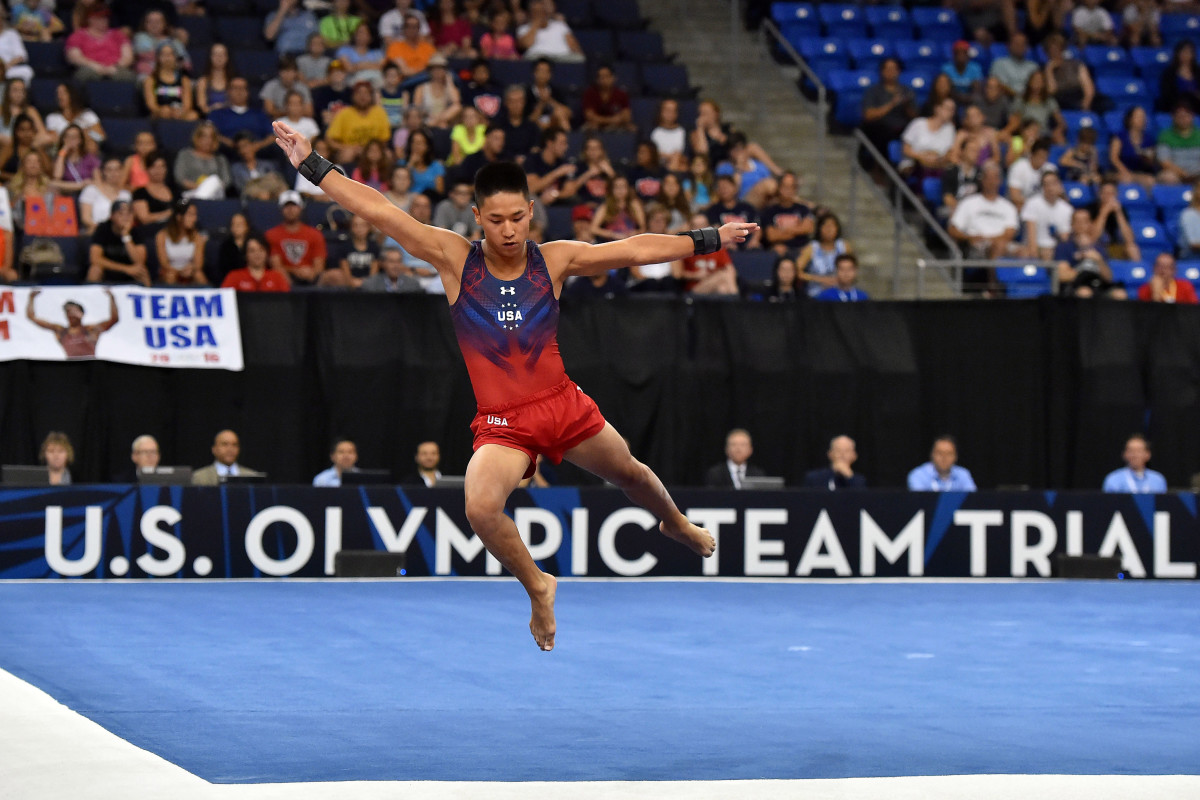
“I’m sure there are gymnasts in the world right now that have a secret place to train or they’re the only ones training right now,” he said. “But I think it’s pretty even for everyone else. There are a lot of things you can do mentally to try not to think about having to play catch-up to what everyone else does. You need to focus on what you need to be doing during this kind of weird quarantine time.
“If you need to stretch more, then do more stretching. If you need to do more to stay in shape, just do that. So it’s almost understanding what your body needs right now to be able to get back into the pounding and the grind to get back into the gym.
“This crisis that’s going on, it’s almost like it’s bittersweet: yeah, you get a whole other year to get better, which is beneficial for most athletes. But again, it’s very hard to build up to something so quickly and then all of a sudden it’s just taken away. It’s no one’s fault. There’s just confusion in the air and kind of a mental reset.”
To get the latest OU posts as they happen, join the SI Sooners Community by clicking “Follow” at the top right corner of the page (mobile users can click the notifications bell icon), and follow SI Sooners on Twitter @All_Sooners.
